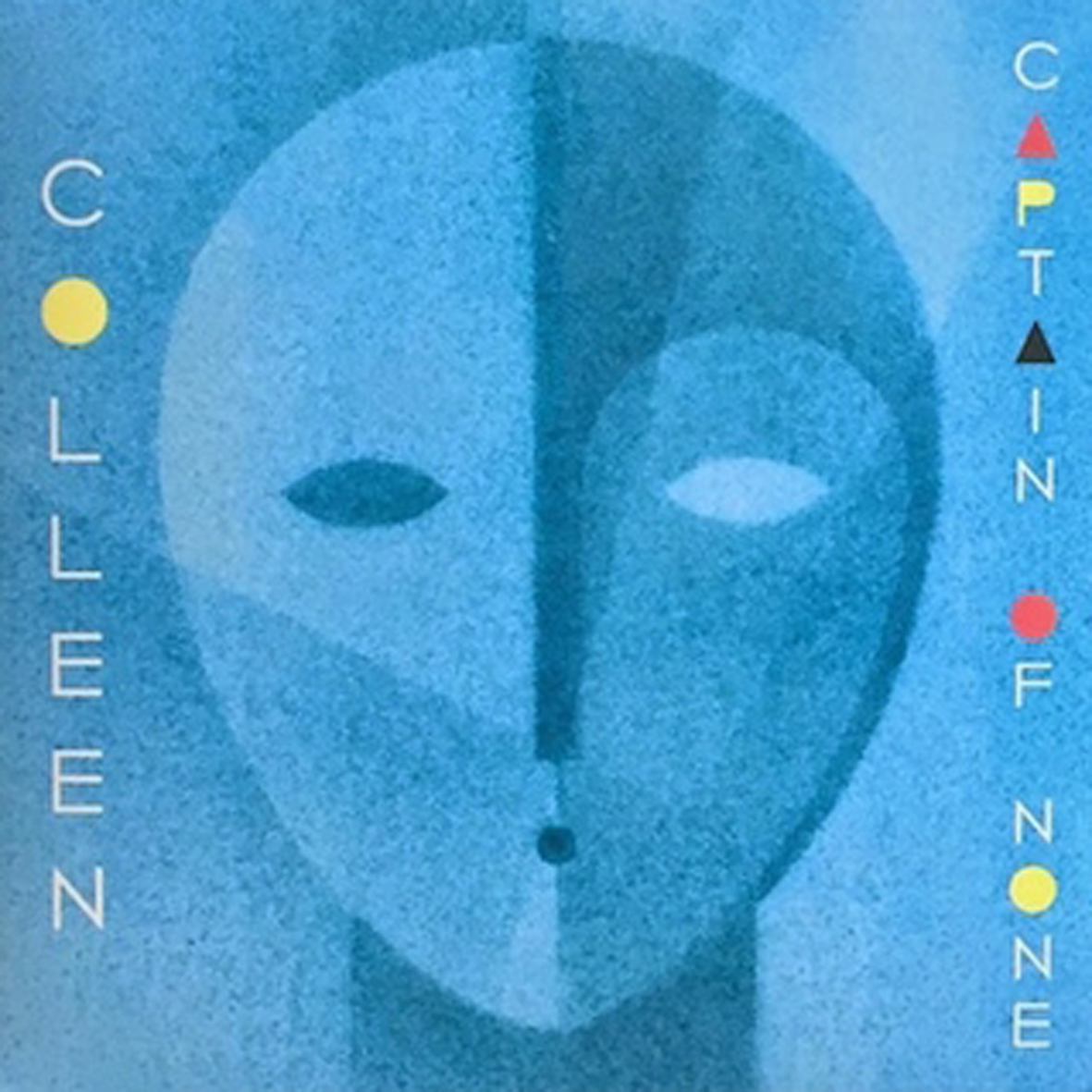 Back in 2013, Cécile Schott unexpectedly ended a very long hiatus in appropriately unexpected style by reinventing herself as an eccentric, viola da gamba-wielding singer/songwriter.  Captain of None is both a continuation and refinement of that vein, but with an additional twist: Schott has found a way to subtly integrate her love of Jamaican dub techniques into the Colleen sound.  That turned out to be a great idea, as I have already seen Captain compared to Arthur Russell's World of Echo more than once.  While it does not all that sound much like Russell stylistically, Schott's hushed and poetic pop experiments are similarly idiosyncratic and starkly intimate.  Also of note: Captain of None is yet another absolutely stellar Colleen album.
Back in 2013, Cécile Schott unexpectedly ended a very long hiatus in appropriately unexpected style by reinventing herself as an eccentric, viola da gamba-wielding singer/songwriter.  Captain of None is both a continuation and refinement of that vein, but with an additional twist: Schott has found a way to subtly integrate her love of Jamaican dub techniques into the Colleen sound.  That turned out to be a great idea, as I have already seen Captain compared to Arthur Russell's World of Echo more than once.  While it does not all that sound much like Russell stylistically, Schott's hushed and poetic pop experiments are similarly idiosyncratic and starkly intimate.  Also of note: Captain of None is yet another absolutely stellar Colleen album.
If there was a prize for "Least Jamaican-Sounding Album," it is hard to imagine Captain of None not at least making the short-list, as Schott's incorporation of dub techniques is only that: Colleen still sounds far more like an early music ensemble than like King Tubby.  Well, for the most part, anyway–there are three exceptions.  The first is the bittersweetly melancholy "Salina Stars," which beautifully augments Schott’s plucked bass line with a bleary, echoing melodica melody that unavoidably calls to mind a heartbroken Augustus Pablo.  The secondly distinctly "dub" moment is the mostly a capella "This Hammer Breaks," which sounds like a modern spiritual beset by some very busy and clattering Muslimgauze-style percussion. The last recognizable stylistic nod to Jamaica ("Eclipse") actually seems like a legitimate stab at dub-reggae, boasting a fluid bass pulse; ghostly, dissolving vocals; and clattering, panning percussion flourishes.  Nevertheless, it remains distinctly Colleen-ified, as the hyper-minimal music is just a very simple viola da gamba pattern endlessly repeated.  For the remainder of the album, Colleen's studio enhancements are just that, seamlessly adding a haze of warm reverb to Cécile’s plucked arpeggios and a patina of deliciously blurred unreality to some otherwise very minimal and direct music that is distinctively, singularly "Colleen."
While the aforementioned "Salina Stars" is a definite highlight in its own right, Captain's greatest moments are its bookends: the opening instrumental "Holding Horses" and the closing title piece.  Bass plucks aside, "Horses" sounds a lot like a rippling, neo-classical harp piece, albeit one where the twinkling arpeggios are trailed by burbling, hallucinatory after-images and warm washes of reverb.  It is quite a stunning feat, as there is so little actually being played (only the bass part has any perceptible melodic motion), yet the piece feels like a shimmering, vibrant, and multilayered tour de force.  "Captain of None" achieves a similar feat of improbable alchemy, maintaining an insistently repeated pattern of just a few notes for the entire song, but filling the spaces with a soft-focus haze of delay and gradually ratcheting up the intensity with some very unusual percussion.  Also, Schott's repeating and minimal lyrics ("captain of nothing, captain of none") gradually take on the hypnotic feel of a mantra as the piece builds in power.  Yet again, Schott manages to be absolutely captivating with just a handful of notes.
The remaining pieces are quite memorable as well, if varied.  The infectiously melodic "Soul Alphabet," for example, sounds like a jaunty bit of steel-guitar Americana transposed to warmly finger-plucked viola da gamba.  "Lighthouse" eventually arrives in a similar place after a lengthy introduction, but augments its rolling and rootsy crescendo with blurred and spectral layers of frayed angelic vocals.  Elsewhere, the minor key "I'm Kin" is a darker variation of the "Captain of None" aesthetic.  Though it does not work quite as well as the title piece, it highlights yet another fascinating element of Captain of None: Cécile’s cryptic and poetic lyrics are a huge part of the album's sublimely alien mystique, eschewing anything remotely mundane for meditations on Argos and kinship with stones and ice (and dogs hanging from trees).  It is frankly easier to imagine this music being made by a Siren than by a regular human, as everything about it seems completely and effortlessly detached from our current time and place.  Also, its directness and guileless simplicity seems too weirdly pure to come from anyone who has not been silently living in a cave or monastery for decades.  The only real critique I can muster is that Captain of None basically sounds like mermaid washed up on the shore to unleash bizarre, crystalline pop perfection upon the world, but only achieved it about half the time.  The rest is merely very good.
Samples:
 
Read More

